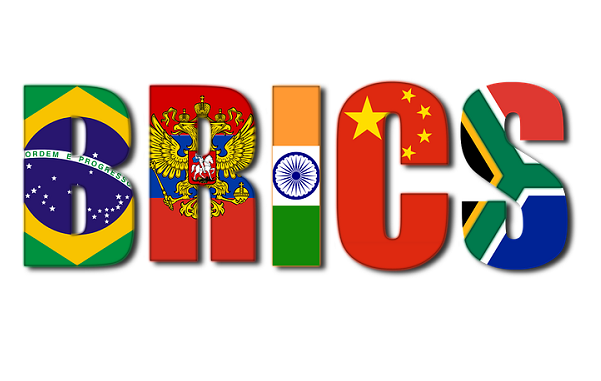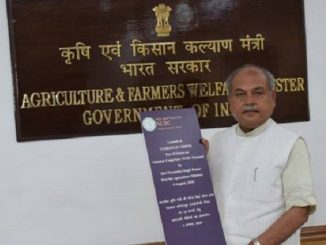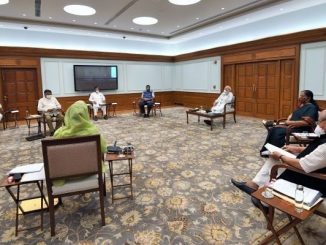
Oct 31: BRICS Business Forum, which is the key annual event of the BRICS Business Council, was held in the format of a video conference under the slogan BRICS Business Partnership: Common Vision for Sustainable Inclusive Development on October 20-28, 2020.
About 90 speakers, representatives of government bodies, financial institutions, business and public organizations from all countries of the Association took part in the Forum.
During three days of active work within the framework of nine panel sessions, participants discussed prospects for cooperation in such areas as industry, trade, digital technologies, agriculture, health care, energy, ecology, women’s entrepreneurship, etc. According to participants, all sessions of the Forum were held at a high substantive level, which made it possible to exchange experience in overcoming the consequences of the COVID-19 pandemic, as well as to present initiatives and long-term plans for interaction.
Minister of Foreign Affairs of the Russian Federation, Sergey Lavrov in his welcoming address stressed the following:
“The coronavirus swept across the globe in a matter of months, changing the way we live. It has tested the global political and economic frameworks and international institutions. Nation states also face unprecedented challenges. We have yet to assess the consequences of the pandemic and come up with collective approaches for overcoming them. The “corona crisis” has demonstrated that our countries are interconnected, that the challenges we face today transcend borders. This has shown that these challenges are interconnected.
You know the current macroeconomic situation. The world economy has entered a recession. Global GDP is shrinking, and so are international trade, investment and demand for key exports. The global value chains are being disrupted, while financial markets are in constant state of turbulence. And there are many other problems we face today, and will have to deal with in the future.
The crises in the economy and trade could make the world more prone to conflict and seriously undermine international cooperation, further exacerbating the deficit of trust. The gap between the rich and the poor is once again growing. Our common goal is to prevent the most negative scenarios from materialising.
Against this unfavorable backdrop, we are witnessing attempts to make a political issue out of the COVID-19 pandemic. We believe that this is the worst thing to do at a time when we need to work together to fend off today’s threats.
It is time that we start thinking about shaping the contours of the post-pandemic world. The only way to make the global architecture resilient is by relying on the UN Charter, and the key principles that are well known: the sovereign equality of states, non-interference in their domestic affairs, peaceful conflict resolution and respect for international law. These remain relevant today, as we mark 75 years since the end of the Second World War and the establishment of the United Nations.
Overcoming the economic fallout from the crisis is a priority. In this context, we need to focus on restoring the global economy, driving growth and expanding trade, as well as repairing the industrial chains. We cannot forget about climate change, sustainable development and the 2030 Agenda for Sustainable Development. I think the BRICS countries will have to look past this horizon to proactively contribute to shaping the long-term global agenda.
The business community in our five countries has a special responsibility in this regard. Businesses are uniquely equipped to swiftly adapt to a new reality, and create much needed jobs during major crises like the current one. This is a huge asset. The BRICS governments will continue to support businesses in every possible way. In this context, the BRICS Business Forum and Business Council are essential for devising effective solutions to support micro, small and medium-sized enterprises.
Female entrepreneurship within BRICS deserves special attention. We are satisfied with the fact that, together with our partners, we have created the Women’s Business Alliance, a non-governmental initiative to promote direct business contact among female entrepreneurs in the five countries. The alliance held its inaugural meeting via videoconference on July 20, chaired by the head of the alliance’s Russian chapter, Anna Nesterova. During the meeting, the participants outlined the possible areas of cooperation for this organization. They expressed their commitment to working together on joint projects in digital development, and e-learning, tourism, healthcare, food production, the creative economy, green business and the textile sector.”
Video messages to the Forum participants were also sent by the Minister of Economic Development of the Russian Federation Maxim Reshetnikov, Minister of Industry and Trade of the Russian Federation Denis Manturov, as well as Deputy Minister of Foreign Affairs of the Russian Federation, Sherpa of Russia in BRICS Sergey Ryabkov (full text of the message: https://bit.ly/3oU1vAC).
The final event of the Forum was the plenary session, chaired by President of the Chamber of Commerce and Industry of the Russian Federation, current Chairman of the BRICS Business Council, Sergey Katyrin on October 28. The event was also attended by the heads of the national units of the BRICS Business Council – Jackson Schneider (Brazil), Onkar Kanwar (India), Xu Lirong (China), Buzi Mabutsa (South Africa).
Summing up the results of the BRICS Business Forum, the participants stressed the importance of closer than ever cooperation and coordination of efforts between government, business, and civil society in order to provide comprehensive assistance to people and the economy during a pandemic.
Disclaimer: We donot claim that the images used as part of the news published are always owned by us. From time to time, we use images sourced as part of news or any related images or representations. Kindly take a look at our image usage policy on how we select the image that are used as part of the news.


